
UNGIS SIDE EVENT - 17
JUNE 2012 - 17h30 to 19h |
 |
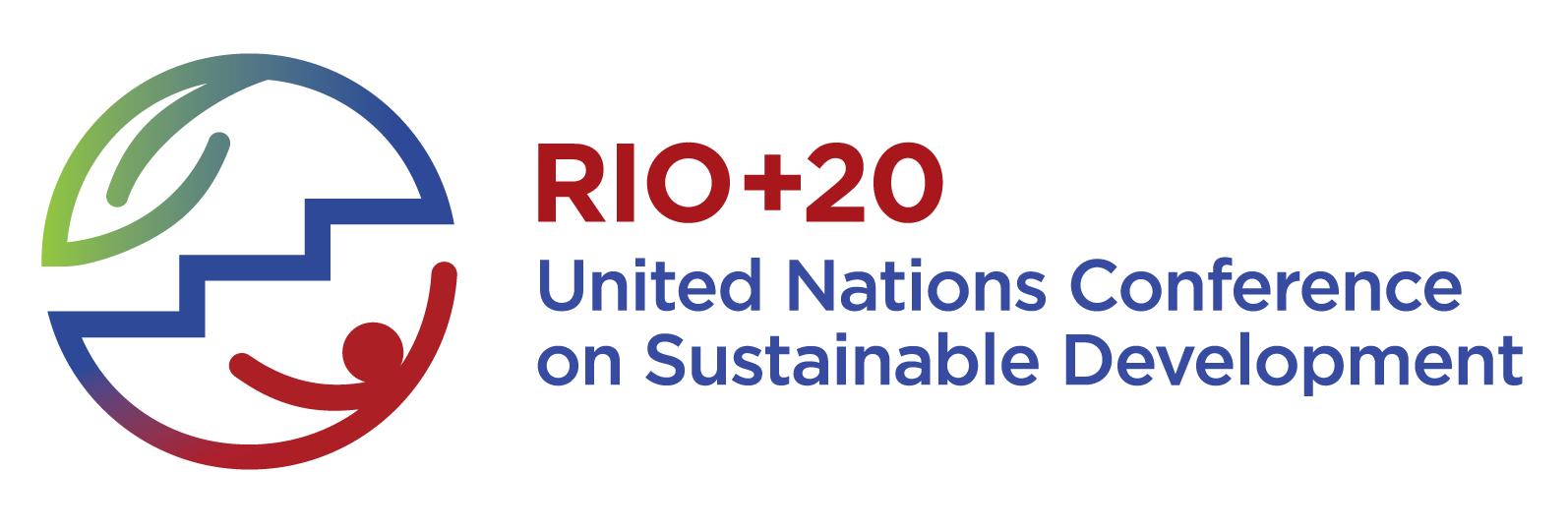
20-22
June 2012
Rio
de Janeiro, Brazil
Share
|
|
|
| |
|
Home |
ITU inputs to
Rio+20 |
News and
resources |
Secretary-General's messages |

|
|
Rio+20
is an
alternative name
given to the
2012 United
Nations
Conference on
Sustainable
Development
(UNCSD). Held to
mark of the 20th
anniversary of
the 1992 United
Nations
Conference on
Environment and
Development
(UNECD or Earth
Summit), Rio+20
will take place
in Rio de
Janeiro (Brazil)
on 20-22 June
2012. |
|
|
|
ICTs, the
foundation of
our sustainable
future
Sunday, 17 June
2012 � 17h30 to
19h
Room P3-6 at
RioCentro, Rio
de Janeiro,
Brazil
|
|
|
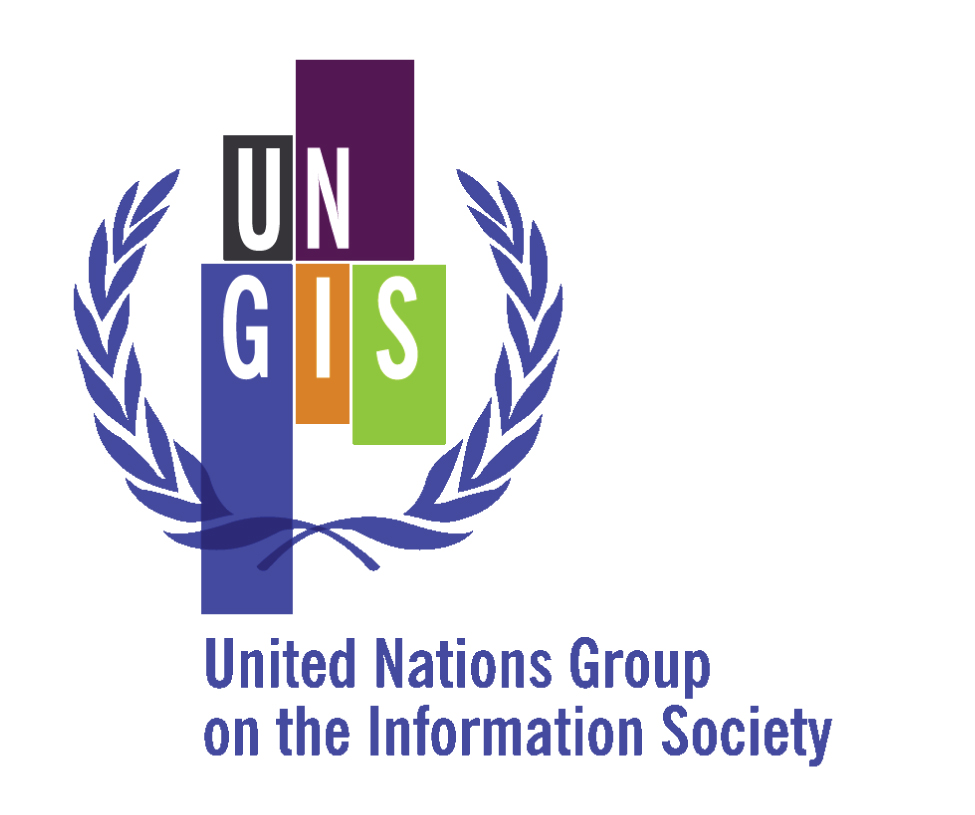 Information and
communication
technologies
(ICTs) play a
critical role to
promote the
integration of
the three
pillars of
sustainable
development.
ICTs advance
social equity
and progress,
enable
sustainable
economic growth
and reinforce
environmental
protection
initiatives. Information and
communication
technologies
(ICTs) play a
critical role to
promote the
integration of
the three
pillars of
sustainable
development.
ICTs advance
social equity
and progress,
enable
sustainable
economic growth
and reinforce
environmental
protection
initiatives.
ICTs are the
most inclusive
infrastructure
on the planet,
with 90% of the
world population
connected to
mobile services
and over one
third connected
to the Internet.
ICTs are a truly
unique platform
for progress
that creates
wealth, optimize
the use of
natural
resources,
enables a low
carbon economy
and give
equitable access
to basic public
services, such
as health care
and education.
ICTs play a
pivotal role in
monitoring,
predicting and
detecting
natural
disasters. Using
these
technologies to
mitigate
disasters
contributes to
saving human
life, protecting
infrastructure,
and supporting
economic
activity leading
to sustainable
development.
The role of ICTs
is already
recognized in
Chapter 40 of
Agenda 21, which
highlights
information
systems as key
elements to
achieve
sustainable
development.
Twenty years
later, the
transformational
role of ICTs has
become even more
visible,
introducing some
of the major
economic and
social
evolutions that
have taken place
in the last two
decades. Today
we can seay that
ICTs are a
unique platform
for a progress
that creates
wealth, optimize
the use of
natural
resources,
enables a low
carbon economy
and give
equitable access
to basic public
services, such
as health care
and education.
The side event
�ICTs: the
foundation of
our sustainable
future� will
look at specific
ICT applications
and services
that can assist
in the
transition
towards a green
economy,
focusing on the
key role that
policies,
regulations and
international
standards, play
to allow for the
uptake of ICT
applications.
The event will
include
presentations
and discussion
on:
- Country-led initiatives to promote social inclusion, accelerate the achievement of the Millennium Development Goals (MDGs) and increase access to public services through the use of ICTs;
- Initiatives lead by international organizations to promote the use of ICTs to monitor the climate and reinforce environmental protection, including those using satellite imagery to monitor deforestation;
- Industry-led innovative green applications that promote sustainable economic growth, such as smart grids, smart buildings, intelligent transport systems;
- Guidelines and standards on the use of ICTs for the reduction of energy consumption and greenhouse gas (GHG) emissions for environmental protection and mitigating climate change;
- How ICTs have across the globe contributed to saving human life before and during emergencies through the establishment of effective monitoring systems, setting up of appropriate early warning systems and efficient systems for timely response.
Format of the
event
- Introductory remarks
- Message from
UNGIS Chair, Mr
Supachai
Panitchpakdi,
Secretary-General
UNCTAD
[biography]
- Message
from ITU
Secretary-General,
Mr Fabio
Leite
on behalf of Dr
Hamadoun Toure,
UNGIS Co-chair
[biography]
- ICTs, advancing social
equity and progress
- Ms
Lakshmi
Puri,
Deputy Executive
Director,
Intergovernmental
Support and
Strategic
Partnerships
Bureau;
Assistant
Secretary-General
of the United
Nations, UNWOMEN
[biography]
- Mr
Alberto Sandoval,
Senior Natural
Resources
Manager FAO
[biography]
- Ms
Gretchen Kalonji,
Assistant
Director-General
for Natural
Sciences UNESCO
[biography]
- Mr Cosmas
Zavazava,
Head, projects
and knowledge
management
department, ITU
[biography]
- ICTs, reinforcing
environmental protection and
climate monitoring
- Mr
Christian
Blondin,
Director Cabinet
of the
Secretary-General
and External
Relations
Department, World
Meteorological
Organization
[biography]
- Mr
James Fahn,
Global Director
of Internews�
Environmental
Programs and
directs
Internews�
Earth Journalism
Network
[biography]
- ICTs, enabling sustainable
economic growth
- Mr Jan
Dus�k,
Acting Director
and Regional
Representative
Regional Office
for Europe UNEP
[biography]
- Mr
Joe Bradley,
Head,
Intergovernmental
Organizations
and Partnerships
Section, WIPO
[biography]
- Mr
Sergio Yamada,
Global
Coordinator of
Climate Change
projects and
Green ICTs, Telef�nica
[biography]
- Conclusions and final
message to the conference
The event will be moderated by Mr
Gary Fowlie, Head of the ITU Liaison
Office to the United Nations
[biography]
Relevant links
l
|
|
BIOS OF THE SPEAKERS
(listed alphabetically by surname)
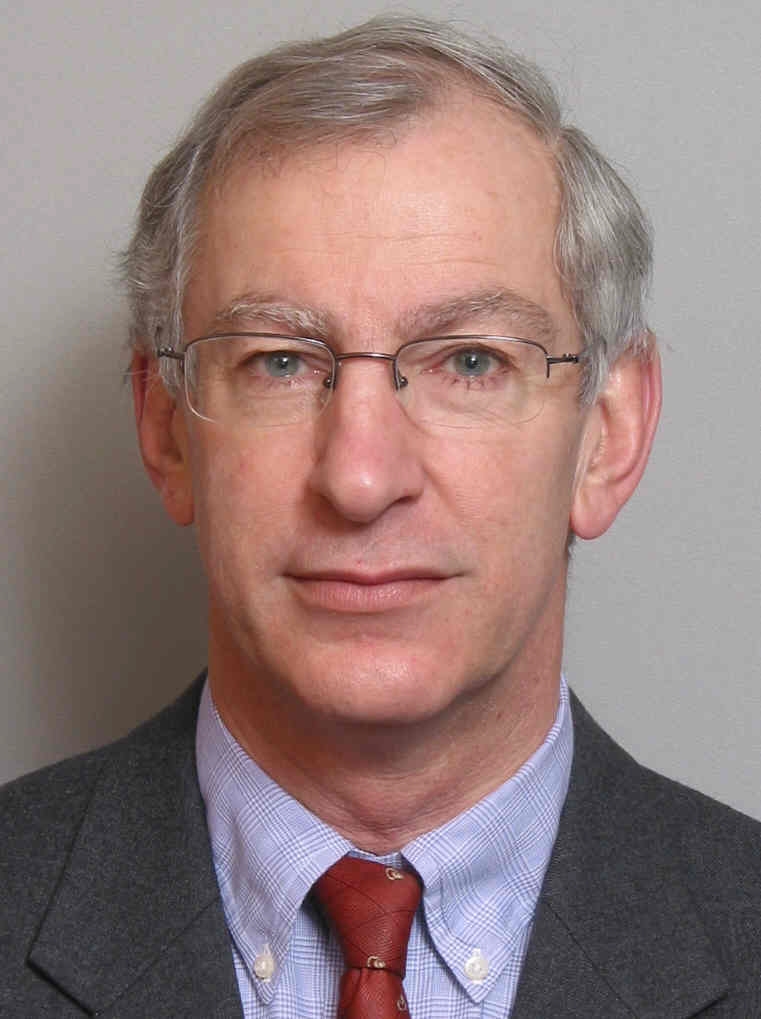
Mr Christian
Blondin,
WMO |
Mr
Christian
Blondin
is the Director
Cabinet of the
Secretary-General
and External
Relations
Department
of the World
Meteorological
Organization
(WMO). Mr Blondin began
his career in
1977 in the
Direction of the
National
Meteorology
within the
Establishment of
Meteorological
Studies and
Researches as
researcher, then
project manager,
in Paris then in
Toulouse. He
joins the
European Centre
for Medium Range
Weather
Forecasts
(ECMWF) in
Reading (United
Kingdom) in
1985. Back to
France in 1989,
he works in
Paris
successively in
the Central
Service of
Meteorological
Operations, then
in 1992 as head
of the division
of Planning of
the Strategy
Department. In
1996, he is
nominated
Interregional
Director for the
Ile-de-France
and the Centre
of M�t�o-France.
In 2009, he
became Senior
External
Relations
Officer within
the Secretariat
of the World
Meteorological
Organization in
Geneva, and
since 2011 he is
Director of
Cabinet of the
Secretary-General
and External
Relations
Department.
|
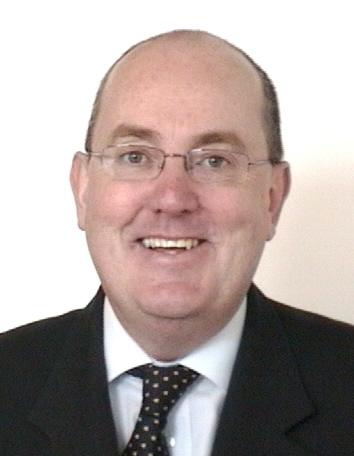
Mr Joe
Bradley, WIPO
|
Mr
Joe
Bradley
is the Head of
the
Intergovernmental
Organizations
and Partnerships
Section, which
is part of the
Department of
External
Relations, at
WIPO. His work
focuses on
WIPO�s
engagement with
the UN system
and developing
partnerships
with
intergovernmental
and other
international
organizations.
His
responsibilities
include the
development and
implementation
of the
organization�s
Partnership and
Resource
Mobilization
Strategy which
includes
partnership with
the private
sector and is
aimed at
supporting
developing
countries to
access partners
and resources
for IP for
development
projects.
Prior to that
Joe was Head of
Program
Management and
Performance
Section at
WIPO.
Previously, Joe
worked for the
UK Diplomatic
Service covering
a range of jobs
at the Foreign
and Commonwealth
Office in London
and at Embassies
and Missions in
Geneva, Berlin,
Vienna, Lusaka
and Lisbon.
|
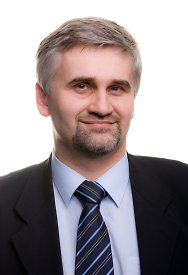
Jan Dusik, UNEP |
Mr
Jan Dus�k
was
born in Plzeň,
Czech Republic.
Jan Durik joined
UNEP in July
2011 as the
Deputy Director
of the Regional
Office for
Europe. Over the
years in the
Czech civil
service, Jan has
been active in
international
environmental
relations, both
bilateral and
multilateral. He
was the Head of
the Delegation
of the Czech
Republic to
numerous
meetings of
parties of
multilateral
conventions and
international
organisations
and their bodies
(e.g. EU, UNEP,
UN CSD, UN ECE,
OECD). He served
as the Vice -
President of the
Bureau of the
UNEP Governing
Council for
2007-2009, as
the Chairman of
the Committee of
the Whole during
the 24th session
and 10th special
session of the
UNEP Governing
Council. He was
the Chairman of
the Bureau of
the Aarhus
Convention for
the period
2008-2011 and
chaired the 4th
Meeting of
Parties to the
Convention in
2011.
|
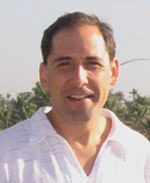
Mr James Fahn,
Internews |
MrJames
Fahn is
Executive
Director of
Internews' Earth
Journalism
Network and
Global Director
of Environmental
Programs. Fahn
is a journalist
who has
primarily
focused on
environmental
issues in
developing
countries. He
previously
worked for the
Ford Foundation
as a program
associate in the
field of
environment and
development. For
nine years
during the
1990s, Fahn was
based in
Thailand where
he was a
reporter and
editor for The
Nation, an
English-language
daily newspaper
based in
Bangkok, and
hosted a
television show.
His book, "A
Land on Fire,"
published in
2003, recounts
the issues and
scandals he
uncovered while
working on the
environmental
beat in
Southeast Asia.
Fahn writes a
monthly Earth
Journalism
column for the
Columbia
Journalism
Review, and
he has also
written for
Newsweek, The
New York Times,
The Economist
and the San
Francisco
Chronicle. He
holds a master's
degree in
international
affairs from
Columbia
University.
|
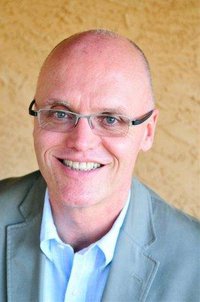
Mr Gary
Fowlie,
ITU |
Mr
Gary
Fowlie
has been the
head of the
Liaison office
of the
International
Telecommunication
Union to the
United Nations
since 2009..
Fowlie is an
Economist and
Journalist. He
was a
Producer/Reporter
for the news
service of the
Canadian
Broadcasting
Corporation for
10 years and a
freelance
reporter for The
Economist. Mr.
Fowlie was
responsible for
communications
for the UN World
Summit on the
Information
Society (2003
and 2005) and
from 2005 until
2009 was the
Chief of Media
Liaison for the
United Nations
in New York. Mr.
Fowlie is a
graduate of the
Universities of
Alberta, Alabama
and the London
School of
Economics.
|
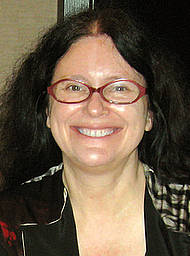
Ms Gretchen
Kalonj, UNESCO |
Ms
Gretchen Kalonj,
Assistant
Director-General
for Natural
Sciences in
UNESCO, took up
office on 1 July
2010. In 2006,
she was
appointed as
distinguished
honorary
professor at
Sichuan
University,
Chengdu, and a
visiting
professor at
Beijing's
Qinghua
University.
Prior to 2005,
Professor
Kalonji was the
first women to
hold an endowed
chair � the
Kyocera
Professor of
Materials
Science and
Engineering at
the University
of Washington
(UW) Seattle,
where she
developed
creative
approaches to
internationalization
and to the
transformation
of science and
engineering
education. At
UW, she led a
campus-wide
effort to
integrate
collaborative
international
research
activities into
the academic
curriculum,
across
disciplines and
from freshmen to
doctoral level.
|
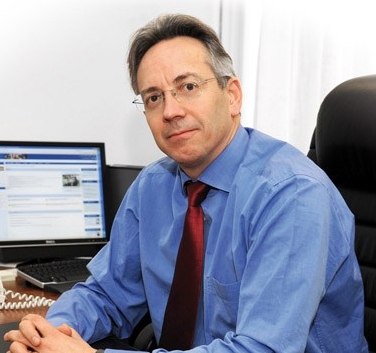
Mr Fabio Leite,
ITU |
Mr
Fabio
Leite
has extensive
experience in
the field of
radiocommunications,
having taken on
varied
responsibilities
both in ITU and
in his native
Brazil, in
government as
well as
industry. Fabio
is currently the
Deputy-Director
and Chief,
Informatics,
Administration
and Publications
Department of
the
Radiocommunication
Bureau. Since
joining ITU in
1987, he has
worked as
satellite
communications
engineer,
counsellor for
mobile radio
services and for
fixed wireless
systems, and
manager of
International
Mobile
Telecommunications-2000
(IMT 2000),
ITU�s third
generation
mobile
communications
project. He has
also served as
executive
secretary in
several ITU
world
radiocommunication
conferences.
Before joining
ITU, Mr Leite
worked for
EMBRATEL, the
Brazilian
long-distance
telecommunication
carrier, where
he was
responsible for
the
communications
system
engineering of
the first
Brazilian
domestic
satellite
system,
BRAZILSAT.
|
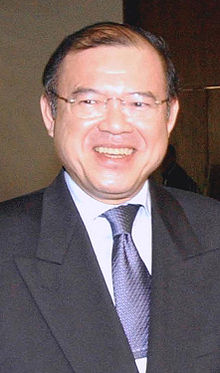
Mr Supachai
Panitchpakdi,
UNCTAD |
Mr
Supachai
Panitchpakdi
began
his second
four-year term
as Secretary-
General of
UNCTAD on 1
September 2009,
following his
unanimous
confirmation by
the United
Nations General
Assembly. Born
in Bangkok on 30
May 1946, Dr.
Supachai
received his
Master�s Degree
in Econometrics,
Development
Planning, and
his PhD in
Economic
Planning and
Development, at
the Netherlands
School of
Economics (now
known as Erasmus
University) in
Rotterdam. In
1986, Dr.
Supachai was
elected to the
Thai Parliament
and appointed
Deputy Minister
of Finance. In
1988, he was
appointed
Director and
Advisor, and
subsequently
President, of
the Thai
Military Bank.
In 1992, Dr.
Supachai was
appointed
Senator, and
that same year
he became Deputy
Prime Minister,
entrusted with
oversight of the
country�s
economic and
trade
policymaking. In
this role he was
actively
involved in
international
trade policy,
and represented
Thailand at the
signing ceremony
in Marrakech of
the Uruguay
Round Agreement
in 1994. He was
also active in
shaping regional
agreements,
including
Asia-Pacific
Economic
Cooperation
(APEC), the
Association of
Southeast Asian
Nations (ASEAN)
and the Asia-
Europe Meeting
(ASEM). From
September 2002
to August 2005,
Dr. Supachai
served as
Director-General
of the World
Trade
Organization.
|
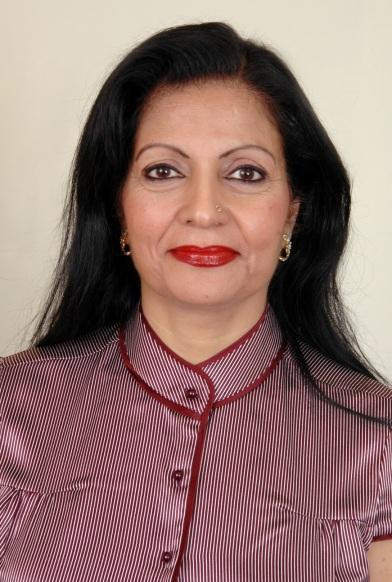
Ms Lakshmi Puri,
UNWOMEN
|
Ms
Lakshmi Puri
is the Assistant
Secretary-General
for
Intergovernmental
Support and
Strategic
Partnerships at
the United
Nations Entity
for Gender
Equality and the
Empowerment of
Women (UN
Women). Ms. Puri
has more than 37
years�
experience in
economic and
development
policy-making as
well as in
political, peace
and security,
humanitarian and
human
rights�related
diplomacy. More
than twenty
years of these
have been in
relation to the
United Nations
system. From
2007 to 2009 she
was acting
Deputy
Secretary-
General of
UNCTAD. She was
appointed
Director in the
Office of the
High
Representative
for the Least
Developed
Countries,
Landlocked
Developing
Countries and
Small Islands
Developing
States in
December 2009,
and she has been
actively
directing the
preparations for
the United
Nations LDC IV
conference held
in Istanbul in
2011.
|
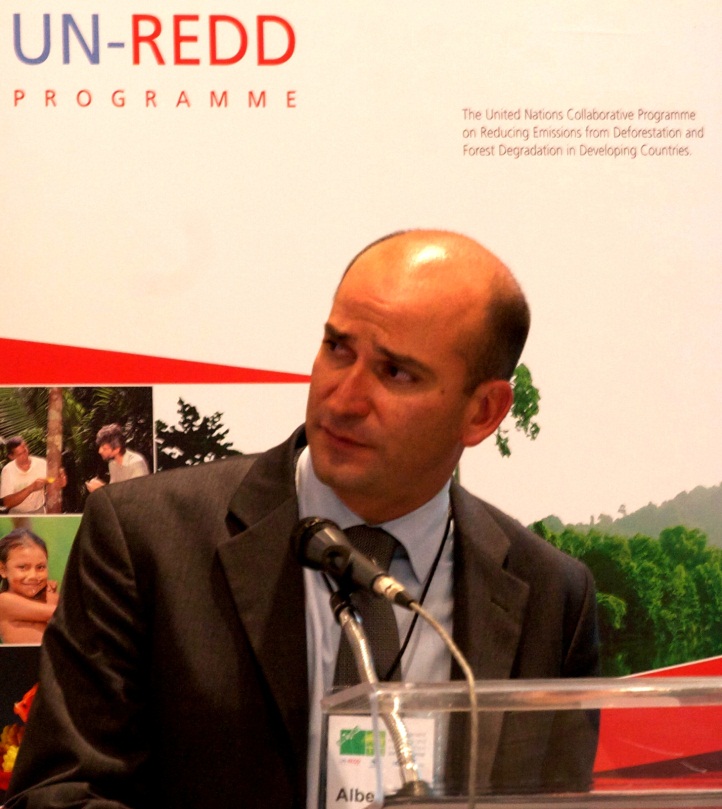
Mr Alberto
Sandoval, FAO
|
Mr
Alberto Sandoval
is
Senior Natural
Resources
Manager of FAO |
|
Mr Sergio
Yamada,
Telef�nica |
Mr
Sergio Yamada
is Global
coordinator of
Climate Change
projects and
Green ICTs in
Telef�nica
|
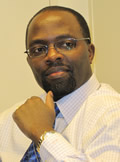
Mr Cosmas
Zavazava, ITU |
Mr
Cosmas L.
Zavazava
is the
Head, projects
and knowledge
management
department
within the
Telecommunication
Development
Bureau of the
International
Telecommunication
Union
(ITU). He
has extensive
experience in
fund raising,
formulating and
implementing ICT
projects for the
general
development of
countries, and
for the
effective
management of
disasters
including
climate change
adaptation. He
has written
articles/papers
and a host of
books on this
subject. Cosmas
Zavazava spent
many years as
Head of
Government
Telecommunications
Agency in
Zimbabwe, and
has extensive
experience as a
senior diplomat
and negotiator
at both
bilateral and
multilateral
levels. He also
taught MBA
classes at
Nottingham Trent
University. |
|
|



